This vegan Greek Fava (from Santorinis)and Pumpkin Soup is made from scratch and is healthy, filling and perfect as a starter for a dinner party or a light supper.
Leftovers can easily be made into a delicious dip.
Don’t confuse Greek fava with fava beans (Vicia Faba) although “vicia” and “vetches” are classified in the same genus. Greek fava (lathyrus clymenum), looks like yellow split peas, but is much tastier and is produced in various parts of Greece.
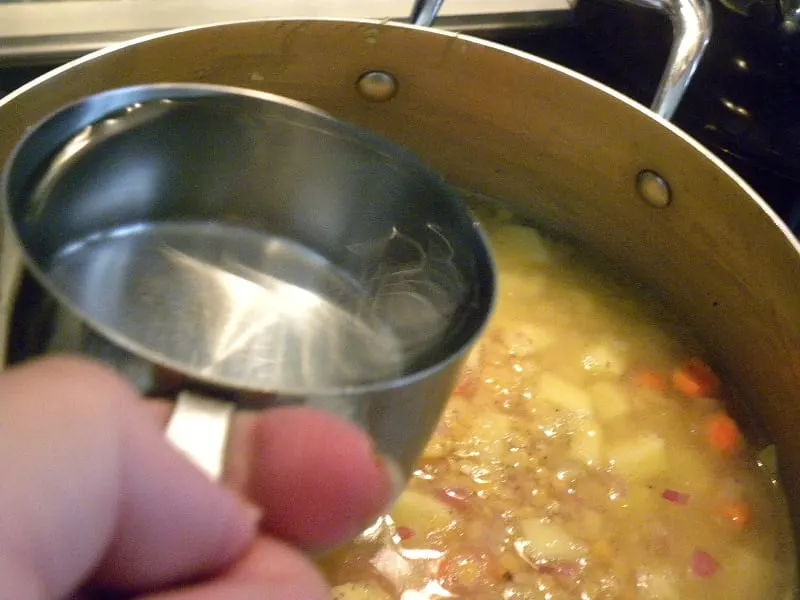
The most popular one is the one produced on Santorini Island, because of the volcanic soil and the climate of the island, which doesn’t need much water to grow.
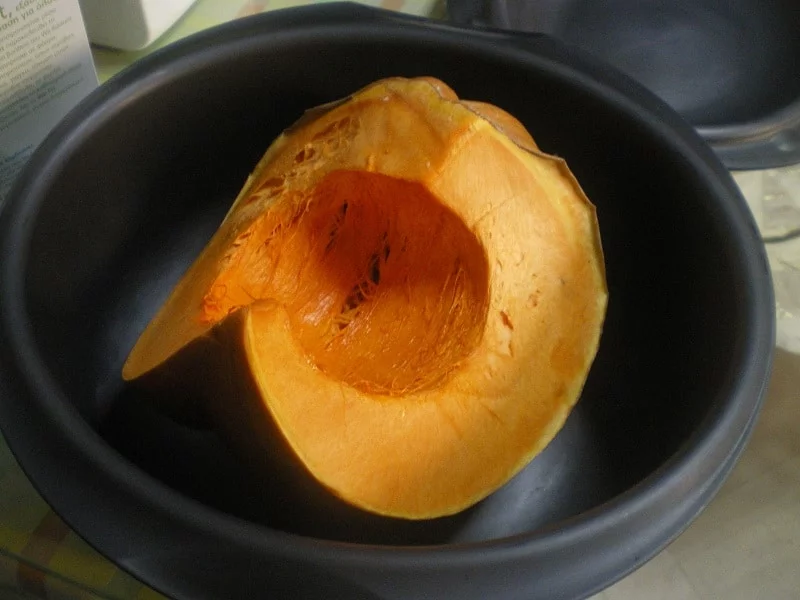
Fava, has been documented and attested after excavations by archaeologists in Santorini. The eruption of the volcano of Santorini, during the Minoan Bronze age, around the 16th century b.C, revealed remains of stored seeds, identified as Lathyrus clymenum seeds, burried under its white ashes (not lava) called aspa in Greek.
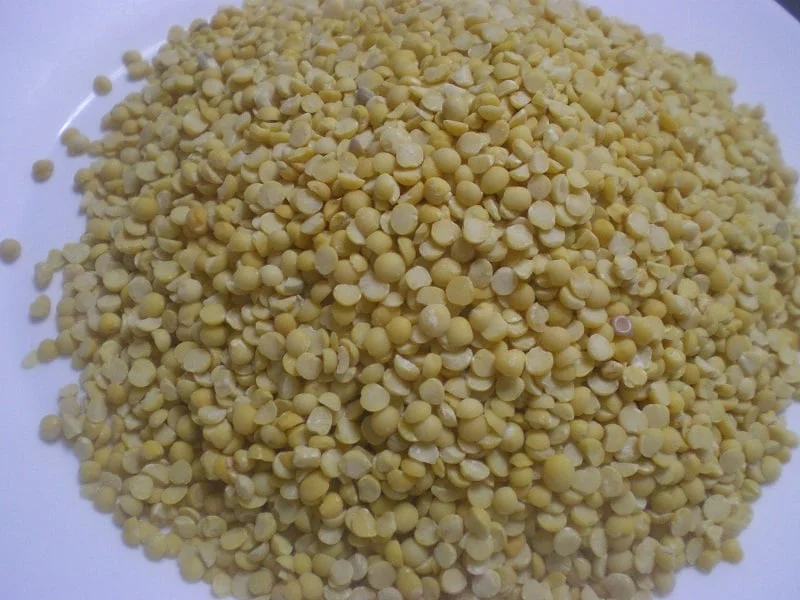
Pulses and dried legumes, have been cultivated in Greece for millenia and are staples of the traditional Greek Diet.
Reading an article at Naturopathy in Greece, here are a few of the properties about Legumes or pulses.
“The very low glycemic index of legumes, abundant in slowly digested starches, helps keep the blood glucose at low levels, and equally, the ensuing pancreatic insulin response. Legumes are low in fat and high in protein. They are also good sources of flavonoids, contain both soluble and insoluble fiber, and are full of cardio-protective nutrients such as arginine, Vitamin E, the B vitamins including folic acid, and minerals such as calcium and zinc.
For people with intestinal problems, we recommend dried beans, lentils and split peas, but soaked for at least 10-12 hours prior to cooking, and the water discarded since it now contains also indigestible sugars. Legumes can be eaten in small amounts by such patients. We recommend legumes 2-3 times a week combined with fresh salad, or with small amount of dairy products and cooked fresh vegetables.”
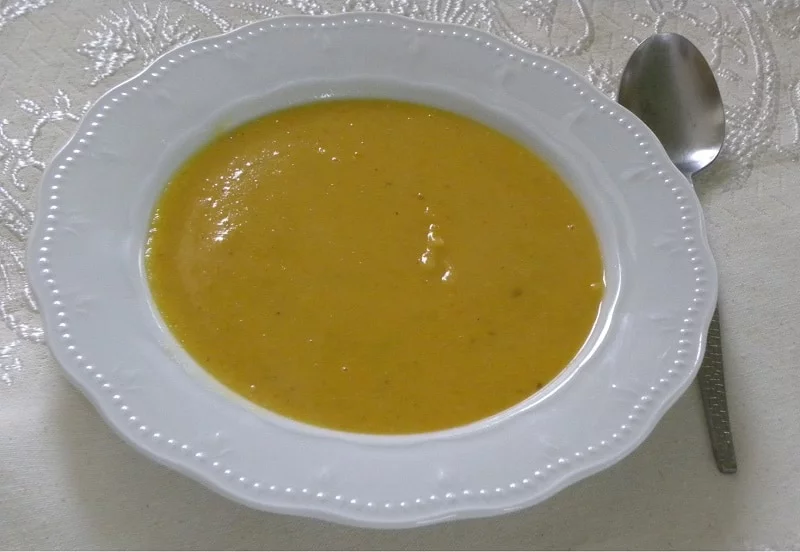
The most common dish made with fava in Greece, is a kind of pudding served as an appetizer, with the same name: Fava is boiled with a finely chopped onion until the water evaporates and it becomes soft and falls apart. When it is ready, olive oil, salt and pepper is added and continues to be cooked for five more minutes. It is served with extra virgin olive oil, lemon juice and finely chopped onion and parsley on top.
Fava pantremeni (which means married), is similar to the Cypriot lentil dish Moudjentra with the addition of fried onions. A similar dish is also made in Cyprus with louvana (Lathyrus Ochrus) also known as Cyprus vetch. However, in the Greek dish, fava is “married / combined” with the fried onions and two more products which Santorini is famous for, which are capers and tomatoes are added to the onions and sautéed together. Half of this mixture is mixed in the boiled fava and the remaining is served on top of the dish. Instead of posting this dish, below you can find two new recipes of mine with twists on this classic recipe.
The first dish is a pumpkin soup. Although the weather is much better now, yet we don’t mind still eating some soups especially because of my husband’s gallbladder diet.
This recipe was first made during December but since soups are good for the gallbladder and since I had some roasted pumpkin in the deep freezer, I made it again a few days ago. The only thing I changed was to add less olive oil (about 1/8th cup) and of course no chicken stock. During the winter, we also added some pasto (smoked pork) in the soup and it was delicious. It goes without saying that this was not added the second time, but I can assure you that still it was a very delicious soup.
This soup is vegan as it is not necessary to add the chicken stock or the smoked pork. If you cannot find Greek fava, you can make this soup and the dip with other grain legumes such as Lathyrus sativus or the yellow split peas (Pissum Sativum). In Cyprus you can make it with louvana.
Note: In Cyprus, the fresh leaves of the vetch are made into a salad, which is called louvanosalata.
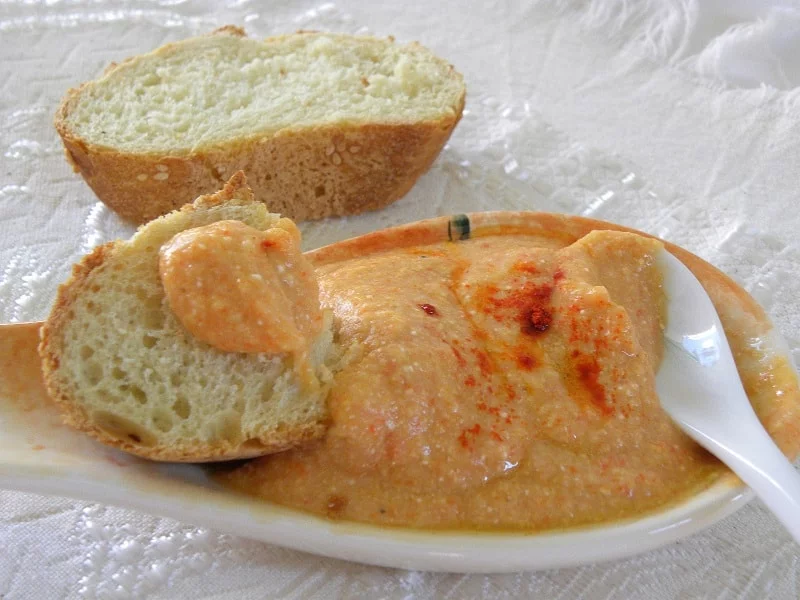
I had some leftover soup, so the next day I drained all the liquid and used it as a base to make a Fava and Pumpkin dip.
I always work with ingredients I have at home and feta is always in my fridge and since I had roasted red peppers, I decided to combine them based on my Scarlet Pesto with Piperies Florinis recipe.
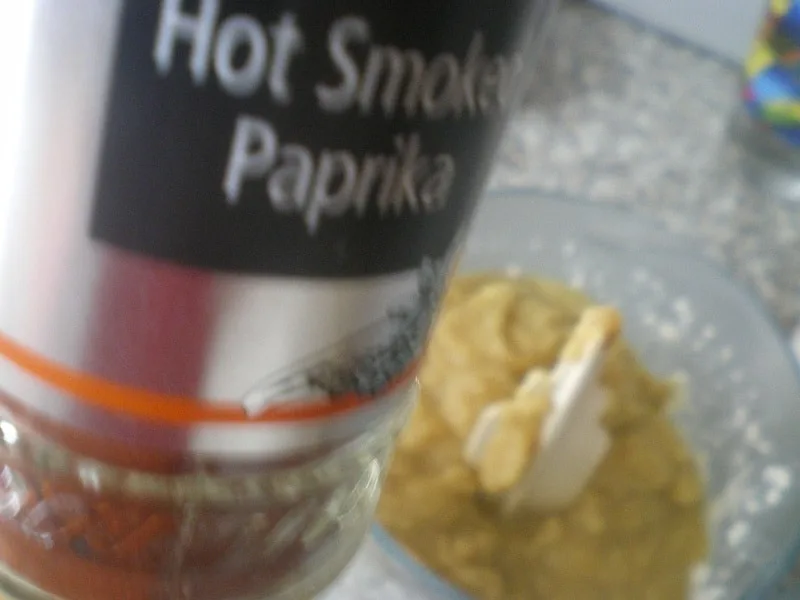
Fava Santorinis and Pumpkin Dip with Smoked Paprika
Ingredients:
- 2 cups cooked fava with pumpkin (as above)
- 1 piperia Florinis (red sweet roasted pepper)
- 1 clove garlic
- 1 tbsp olive oil
- 1/4 cup lemon juice (about 1 lemon)
- 100 grams feta
- Smoked paprika (about 1/2 tsp)
- Extra Virgin Olive oil on top
Directions:
- Drain the soup.
- Put the garlic with lemon juice and olive oil in a food processor and mix.
- Add fava, red peppers as well as the remaining ingredients and purée.
- Serve with extra olive oil and a pinch of paprika on top.
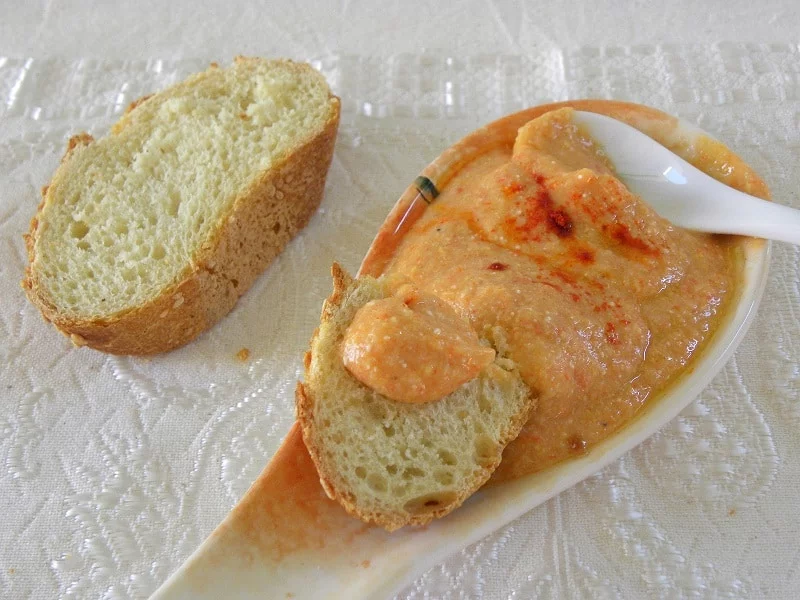
I take this opportunity to thank all of you for your kind wishes on Facebook for my birthday today.
I also want to wish you all a Happy Easter and inform you that my blog will be on hiatus for a short time but I will catch up with your news either on Facebook or Twitter.
Recipe for soup, adapted for Gallbladder Diet
Disclaimer: I’m not a doctor, I’m not a surgeon and I’m not a dietician. Each person may have different symptoms, so please consult your doctor before following this diet.
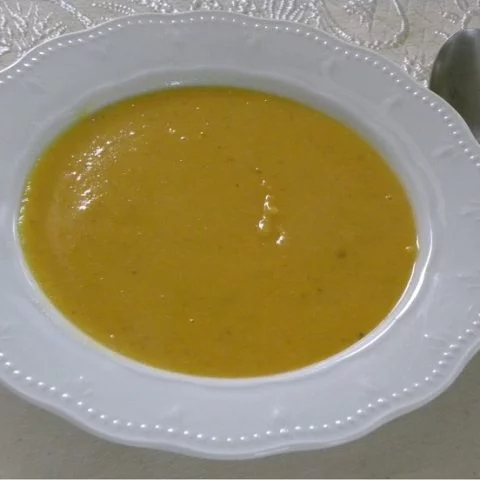
Greek Fava from Santorini and Pumpkin Soup
This vegan Greek Pumpkin and Fava Soup is made from scratch and is healthy, filling and perfect as a starter for a dinner party or a light supper.
Ingredients
- 500 grams Greek fava
- 1/3 cup olive oil
- 1 large onion, finely chopped
- 1 large clove garlic, finely chopped
- 2 liters of vegetable stock (or water with 1 bio vegetable cube), optional
- 2 bay leaves
- 1 large potato, cut into cubes
- 1 - 2 stalks celery, chopped
- 3 carrots, chopped
- 1 cup pumpkin puree
- Salt and freshly grated black pepper
- Extra olive oil
- Freshly ground black pepper to serve
Instructions
- Soak the pulses from the previous evening or early morning, for at least 5 to 6 hours, as per instructions on the packet. Put them in a colander and rinse well.
- Put them in a pot with water to cover them and bring to a boil. Lower heat and skim well. Drain again.
- In a large saucepan, heat the olive oil and sauté the onion and garlic with a little salt and pepper until translucent.
- Put the pulses in the pot, stirring well to cover everywhere with oil. Add the potatoes, carrots and celery, bay leaves and vegetable broth (or water with cube).
- Bring to a boil over high heat, lower heat and simmer for about 1 - 1 ½ hours until the pulses are soft. More water may be needed.
- Meanwhile roast the pumpkin and purée it using an immersion blender or a food processor (or if it has been frozen, thaw it). Purée the soup as well and add the pumpkin and mix.
- Boil together for 5 to 6 minutes, turn off the heat and add a little raw olive oil and stir.
Nutrition Information
Yield 8 Serving Size 1Amount Per Serving Calories 170Total Fat 11gSaturated Fat 2gTrans Fat 0gUnsaturated Fat 9gCholesterol 0mgSodium 802mgCarbohydrates 17gFiber 3gSugar 4gProtein 2g
"These values are automatically calculated and offered for guidance only. Their accuracy is not guaranteed."
Gallbladder Diet Friendly Food
Some recipes I made when my husband was suffering with his gallbladder.
Updated recently with new recipes, as my daughter has now gallbladder stones.
Disclaimer: I'm not a doctor, I'm not a surgeon and I'm not a dietitian. Each person may have different symptoms, so please consult your doctor before following this diet.
Healthy Minced Chicken Sauce
Minced chicken sauce is a versatile ingredient that can be used in a variety of dishes. I used this recipe to make two dishes, adapted for gallbladder diet: 1 serving of Spaghetti with chicken meat sauce and 2 servings of Cottage pie.
Chicken with Leeks, Greek Yoghurt and Kafkalithres Pesto
Chicken with Leeks is a very simple but delicious and light dish which can be whipped up in no time made with Greek yoghurt and pesto which makes a very creamy sauce. Â
Gallbladder Diet: Foods for Gallbladder Problems
The following dietary treatment is recommended for you who have undergone a laparoscopic cholecystectomy to avoid possible discomfort during the early postoperative period.
Greek Fava and Pumpkin Soup and Dip
This Greek Pumpkin and Fava Soup is made from scratch and is healthy, filling and perfect as a starter for a dinner party or a light supper.
Greek Frιed Potatoes (also in the air fryer)
In some countries they call them potato chips and in others, French fries, fries or finger chips. Â In Greece, we call them "Patates Tiganites" (pr. pah-TAH-tess Tee-ghah-nee-TESS).
Anginarosoupa: Artichoke & Celeriac Soup
Anginarosoupa, is a healthy and delicious Artichoke and Celeriac soup made from fresh artichokes, onions, garlic, celery and many other vegetable. The fish and Greek yoghurt are optional, so if you leave them out the dish is vegan.
Gemista (Stuffed Tomatoes) adapted for gallbladder diet
Gemista (pronounced as yeh-mee-STAH), are Greek stuffed tomatoes and peppers filled with rice and herbs, baked with potatoes, in a tomato sauce. Â
Airfryer Meatballs adjusted for Gallbladder Diet
These meatballs are made into two different kinds, Half of them will be made for a special diet for Gallbladder and baked in the air fryer and the remaining will be adjusted with more ingredients for the rest of the family.
If you liked my recipe pin it on Pinterest to make it later on or when you make it, I would be glad to see your photos on Facebook, Twitter or Instagram, using the hashtag #Greekpumpkinsoup or #Greeksoups.
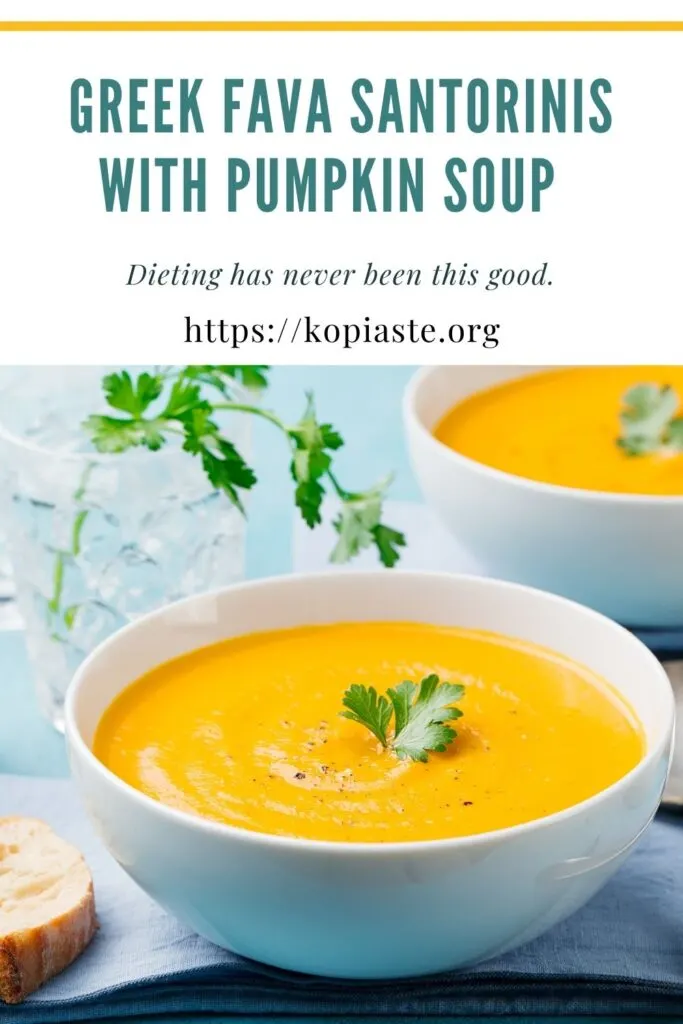
Kopiaste and Kali Orexi,
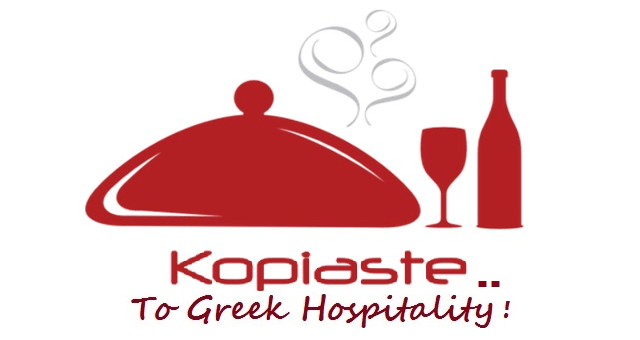
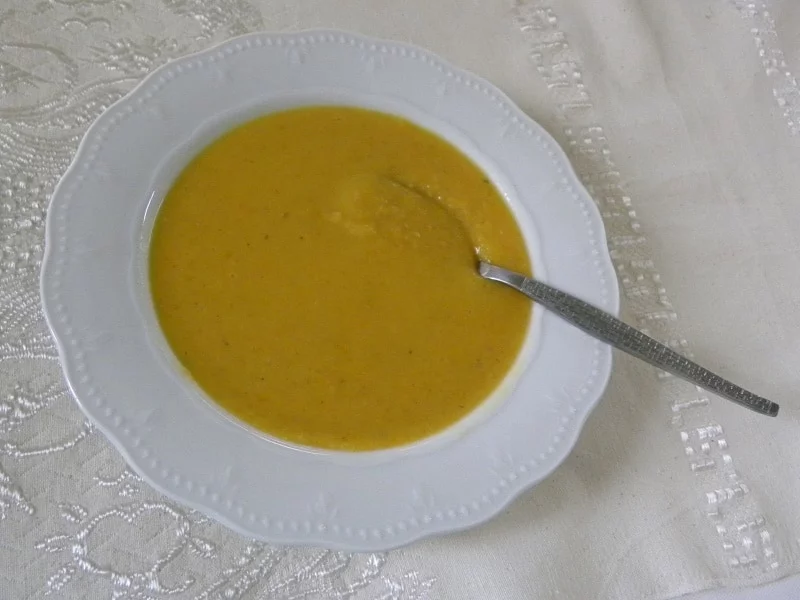
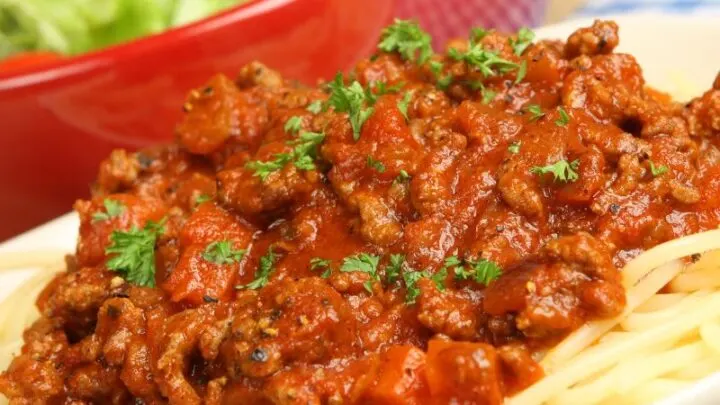
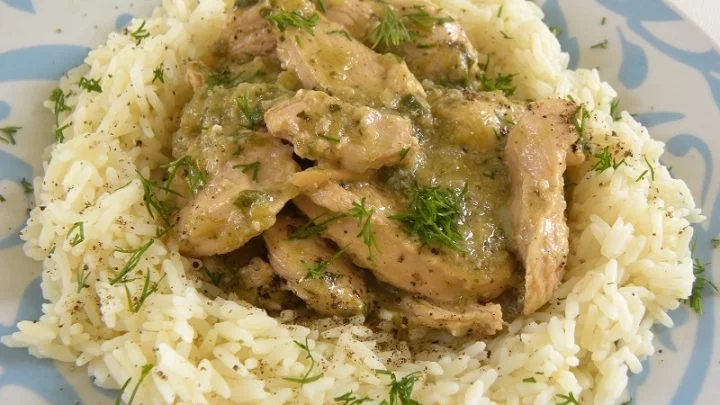

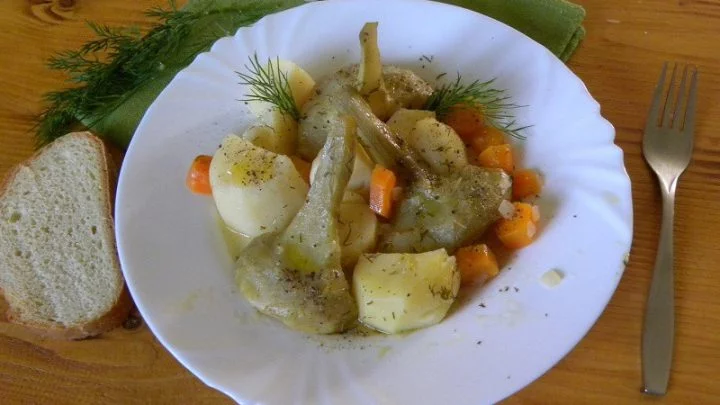
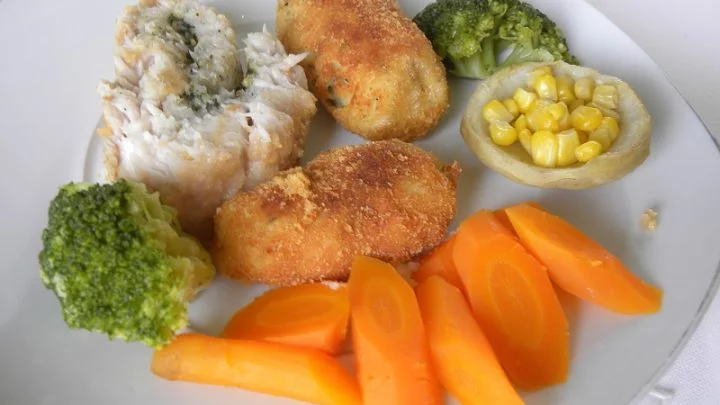
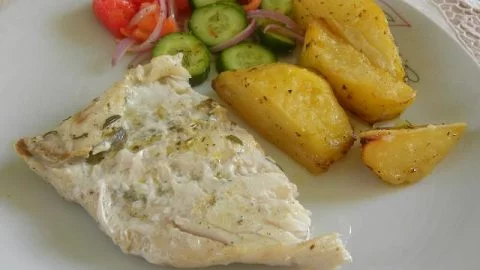
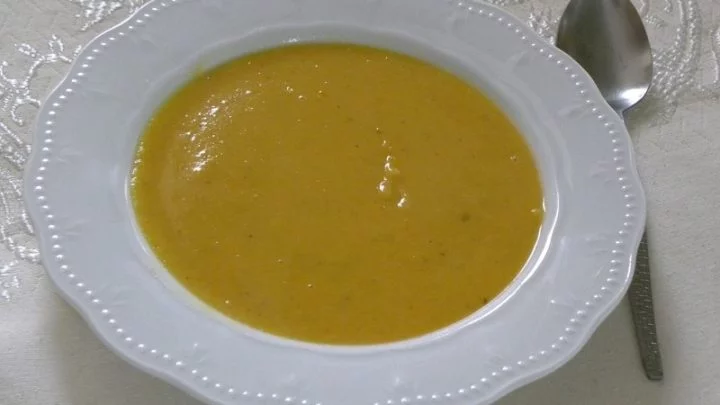
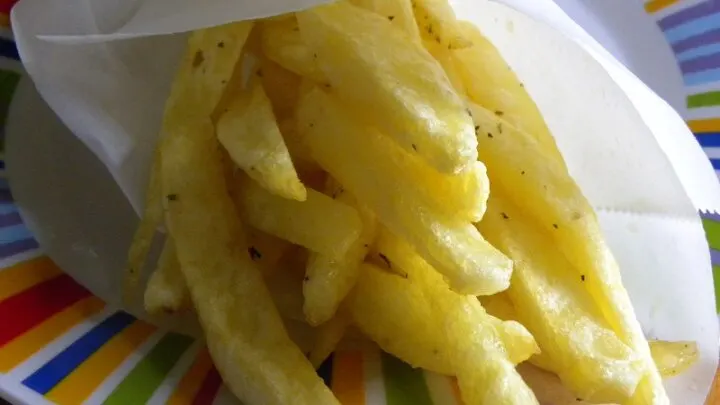
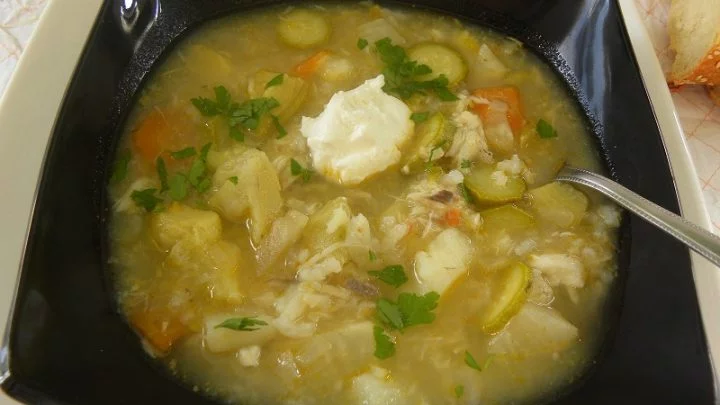
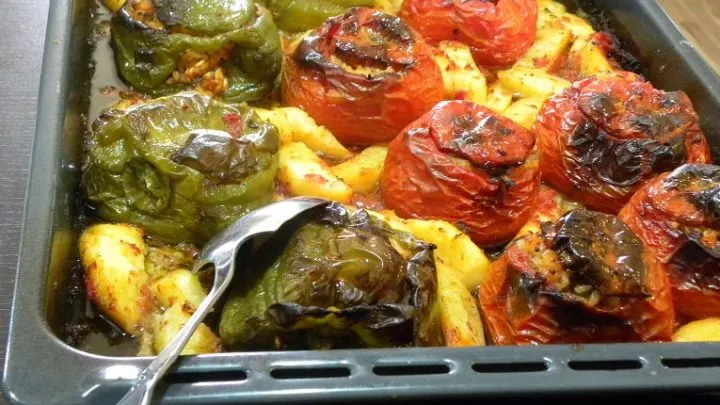
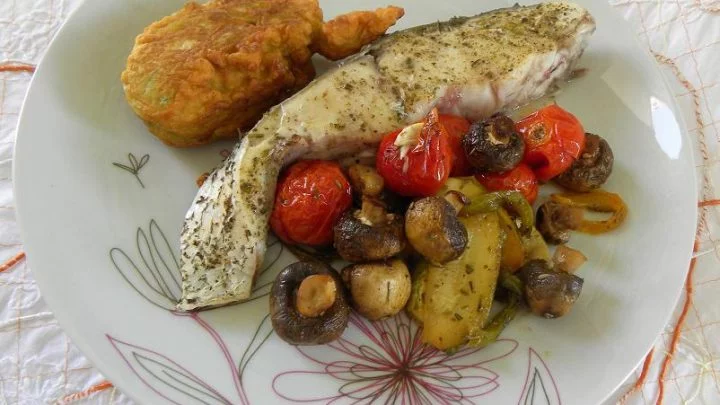
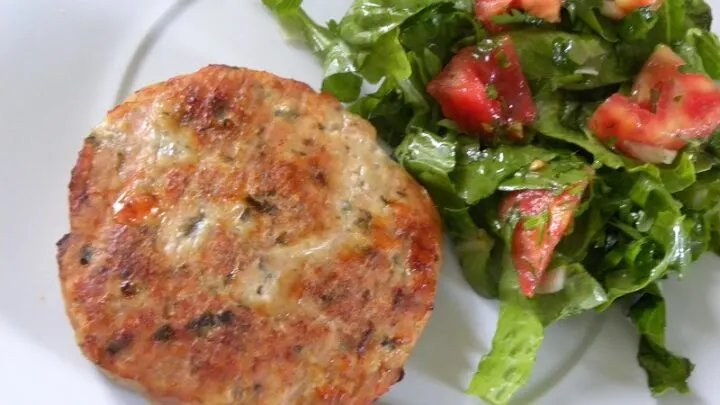
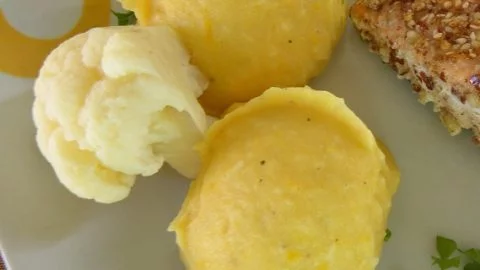
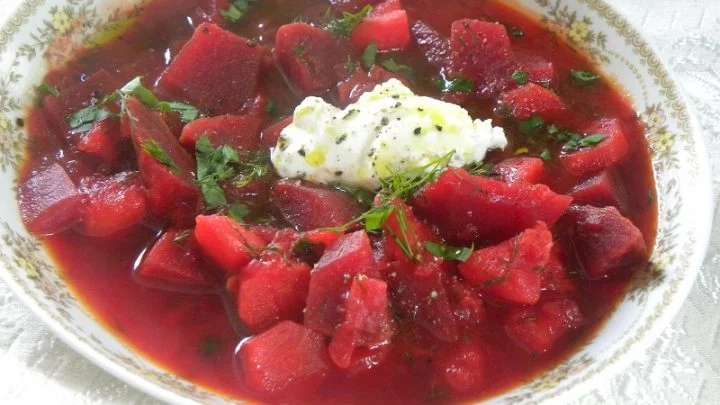
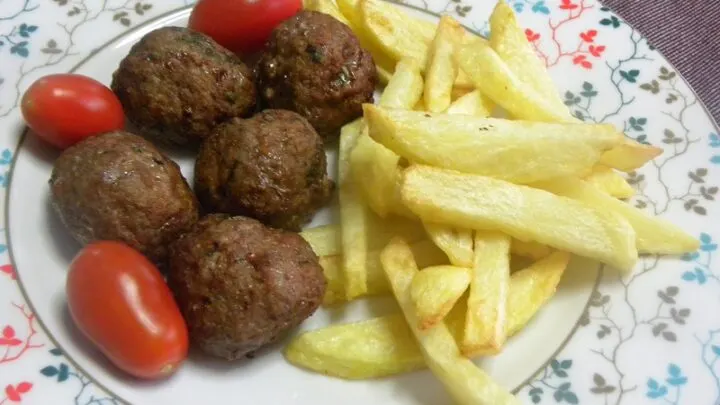

33 of the Best Healthy Pumpkin Recipes | This Mama Cooks! On a Diet
Saturday 9th of October 2021
[…] Greek Fava and Pumpkin Soup and Dip from Kopiaste...to Greek Hospitality […]
Michelle
Friday 25th of May 2012
The last one looks like roe salad :D I could eat it through the monitor! Well, I sure know what I'm gonna try this week-end. Just hope to find all the ingredients...
vianney
Wednesday 4th of April 2012
Thank you for introducing me to greek favas, the dip would be a hit in my home!! Delish!
Caffettiera
Tuesday 3rd of April 2012
I've never seen those Greek fava, but I'll look out for them the next time I go to my local ethnic shop - maybe I've always mistaken them for yellow split peas. Your recipes are very appetizing, and I'll try them with anotherpulse if I can't find the fava - I'm thinking split chickpeas would work...
Jay
Monday 2nd of April 2012
looks healthy & inviting..:) Tasty Appetite